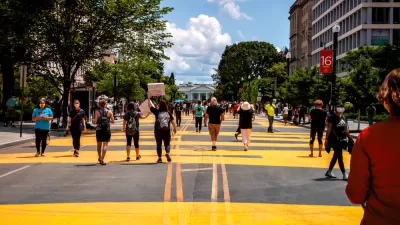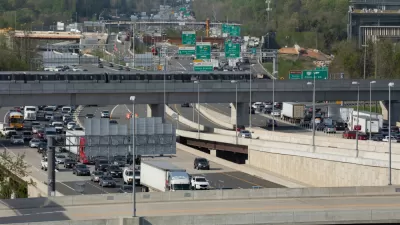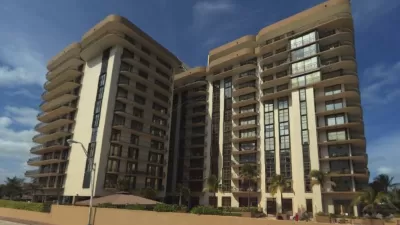The nation's capital is hoping to increase the funding support offered to households through the Home Purchase Assistance Program to help more people afford the critical first step of buying a home.
Washington, D.C. is considering an expansion of its Home Purchase Assistance Program (HPAP). Elizabeth Falcom reports that the D.C. Council held a hearing on January 7, 2016 "to consider raising the maximum amount [HPAP] applicants, from $50,000 to $80,000."
The article includes a lot more detail about how the program works, including a discussion of how the award available under the program has fluctuated over years. The most recent fluctuations mean the program has some catching up to do:
In 2008, the award amount was capped at $70,000. But when the recession hit, federal and local resources shrank, and the award amount dipped to $40,000 per purchase. While that rose to $50,000 in 2014, that jump paled in comparison to the rapid increase in the cost of buying a home here.
According to Falcom, the proposed adjustment has a wide range of support, including from the Department of Housing and Community Development, which manages the program. Earlier this week, Aimee Custis reported that Washington, D.C is also considering an expansion of its inclusionary zoning policy to also help more people afford housing in the nation's capital.
FULL STORY: DC has a program to help first-timers buy a house, and it may start giving more aid

Study: Maui’s Plan to Convert Vacation Rentals to Long-Term Housing Could Cause Nearly $1 Billion Economic Loss
The plan would reduce visitor accommodation by 25,% resulting in 1,900 jobs lost.

North Texas Transit Leaders Tout Benefits of TOD for Growing Region
At a summit focused on transit-oriented development, policymakers discussed how North Texas’ expanded light rail system can serve as a tool for economic growth.

Why Should We Subsidize Public Transportation?
Many public transit agencies face financial stress due to rising costs, declining fare revenue, and declining subsidies. Transit advocates must provide a strong business case for increasing public transit funding.

A Visual Celebration of Manhattan’s Chinatown Elder Community, Through Food
Lanterns, cafeteria trays, and community connection take center stage in this stunning photo essay.

How to Make US Trains Faster
Changes to boarding platforms and a switch to electric trains could improve U.S. passenger rail service without the added cost of high-speed rail.

Columbia’s Revitalized ‘Loop’ Is a Hub for Local Entrepreneurs
A focus on small businesses is helping a commercial corridor in Columbia, Missouri thrive.
Urban Design for Planners 1: Software Tools
This six-course series explores essential urban design concepts using open source software and equips planners with the tools they need to participate fully in the urban design process.
Planning for Universal Design
Learn the tools for implementing Universal Design in planning regulations.
City of Santa Clarita
Ascent Environmental
Institute for Housing and Urban Development Studies (IHS)
City of Grandview
Harvard GSD Executive Education
Toledo-Lucas County Plan Commissions
Salt Lake City
NYU Wagner Graduate School of Public Service





























